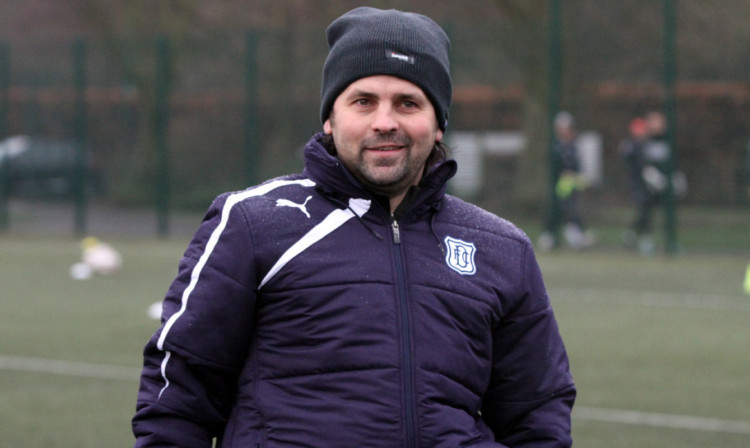As with any addict, it’s too soon to be sure that the habit has truly been kicked.
When you’re talking about Dundee Football Club, there’s always the possibility of a relapse.
Because, with the possible exception of Hearts, there isn’t a club in Scotland that has been as hooked on installing a former player as its manager than the Dees.
Out of the last 20 permanent bosses, 13 of them were old boys. And, if you just look at recent times, the last four have all been ex-players.
In Paul Hartley, they appointed the best man for the Dundee job, not the best ex-Dundee player for the job. It’s a concept they would do well to hold on to.
Going by comments made by one of the directors at Dens, they were conscious of the fact that a different direction need to be taken. (Mind you, there weren’t any realistic options in Dark Blue out there, and there’s only so many times you can go back to Jocky Scott).
Dundee are far from alone in historically leaning towards one of their own. Every club finds it impossible to resist the temptation at some point. The image of a returning hero to a chairman is like a mermaid to a sailor. Even the sane, cool headed and cool hearted ones like the Boston owner of Liverpool get lured on to the rocks by a King Kenny from time to time.
John W Henry soon realised the error of his ways, though, and wisely asked himself the question what possible relevance can the fact that you once pulled on the shirt of a football club (even with great distinction) have on your ability to manage it? The answer, of course, is absolutely no relevance whatsoever.
All it does is buy the man a bit more time when things are going wrong, but that’s not even a positive for the club, it’s a positive for the individual.
I’d go so far as to say being a former player isn’t just an irrelevance, it’s a hindrance.
Dundee United have tried it a few times as well, with very little success. One of the former players who failed to bring the good times back to Tannadice was Paul Sturrock. Apart from the doomed short spell at Southampton, Sturrock made a better job of his other six jobs in football management than he did at United.
It consumed and smothered him, and Sturrock wasn’t able to be as rational and dispassionate with United as he was everywhere else.
Outsiders make decisions with a clear thought process. Insiders can struggle to separate sentiment from necessity. Graeme Souness ditched the no Catholics signing policy at Ibrox but no Rangers Man before him had been able to bring himself to do it.
There isn’t a club in Tayside infact in Scotland that has got their managerial appointments right as consistently over the last 10 years as St Johnstone. Owen Coyle, Derek McInnes, Steve Lomas and Tommy Wright have all been success stories. The one time it didn’t work out? 1970s Muirton Park pin-up, John Connolly. Heart has never ruled head again with Geoff or Steve Brown.
Hartley has no more affinity with Dundee than he does Alloa, and that’s how it should be.
A manager needs to be able to listen to what the fans say, but not let them influence his thinking or be weighed down by their expectations and demands, as can happen when you were once a terrace idol.
Getting Dundee back to the top flight and keeping them there is a hard enough task as it is, or at least the second part is. Misty-eyed nostalgia would only make it harder.
